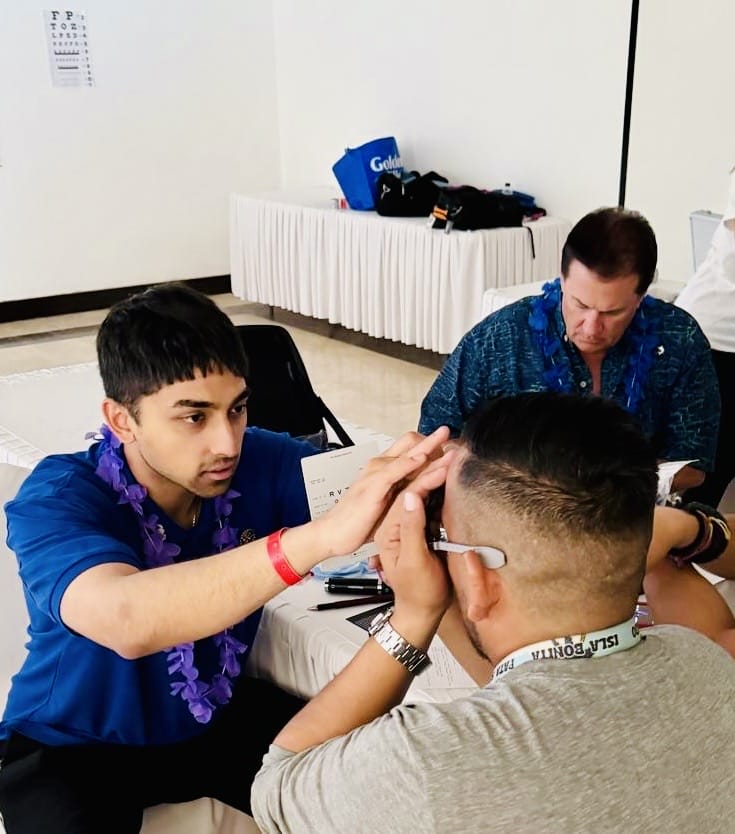WesternU College of Optometry studies role of interprofessional interaction in treating diabetes
Researchers at Western University of Health Sciences College of Optometry recently found that doctors of optometry play an important role working with other kinds of health care providers to take care of people with diabetes.
Most doctors of optometry who were surveyed – about 97 percent – interact with other health care professionals at least once a year, and even more regularly than every year, for patients with diabetes. Further, doctors of optometry who interact with other providers more regularly were more likely to be satisfied with their health care role, and are more likely to believe that team-based care makes a difference in patient outcomes.
The article, “Factors associated with regular interprofessional interaction by doctors of optometry in management of patients with diabetes mellitus,” by College of Optometry Associate Professor Kierstyn Napier-Dovorany, OD, College of Pharmacy Assistant Professor JaeJin An, BPharm, PhD, and College of Optometry Dean Elizabeth Hoppe, OD, MPH, DrPH, was published in the Journal of Interprofessional Education and Practice.
The survey found that about two-thirds of doctors of optometry who interact with other providers are satisfied with their interprofessional interaction. Factors that make doctors of optometry more likely to interact with other providers include practice in a rural area; spending a significant amount of time managing ocular diseases; managing more patients with diabetes per week; and having completed optional post-graduate residency training. Doctors of optometry who regularly participate in interprofessional interactions were more likely to be satisfied with their interactions, and more likely to believe that team-based care makes a difference in patient outcomes and satisfaction.
The research shows that doctors of optometry are actively working with other providers on behalf of patients with diabetes, and that they are happy with the results of that work.
“The American Diabetes Association has long been educating people with diabetes about the need to seek regular eye care. This research shows that when people do receive eye care from their doctor of optometry, they can expect an even greater benefit by bringing in another health care professional to work on their support team,” Hoppe said. “Because doctors of optometry share information with the other health care providers taking care of them, the patients stand to gain through a more comprehensive approach.”



